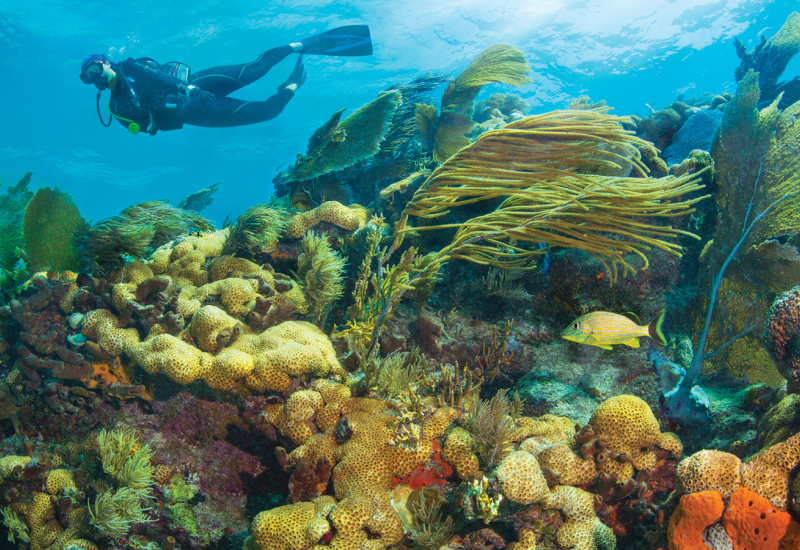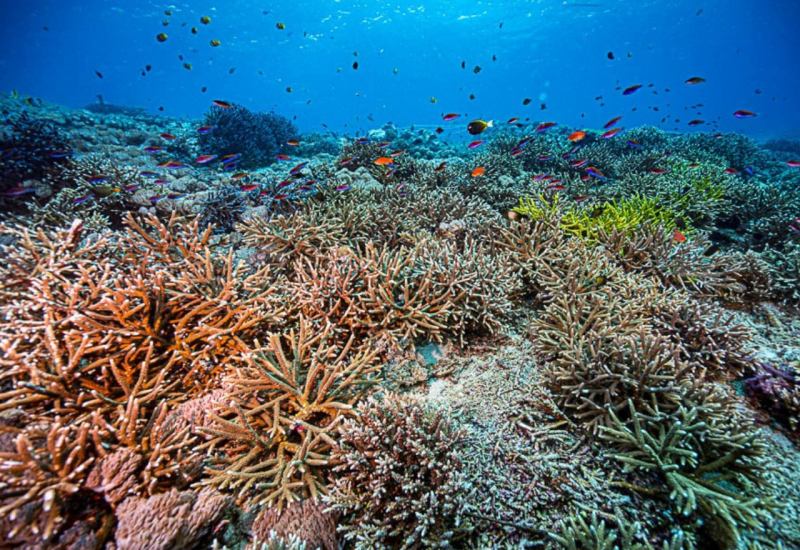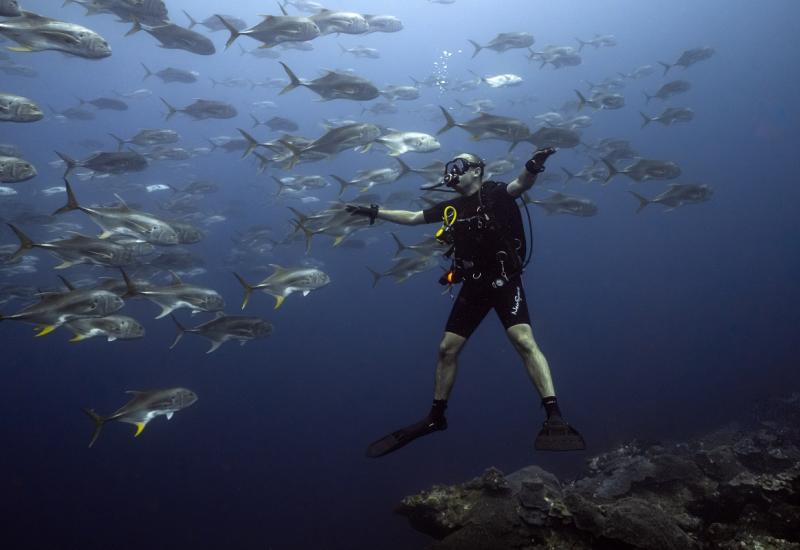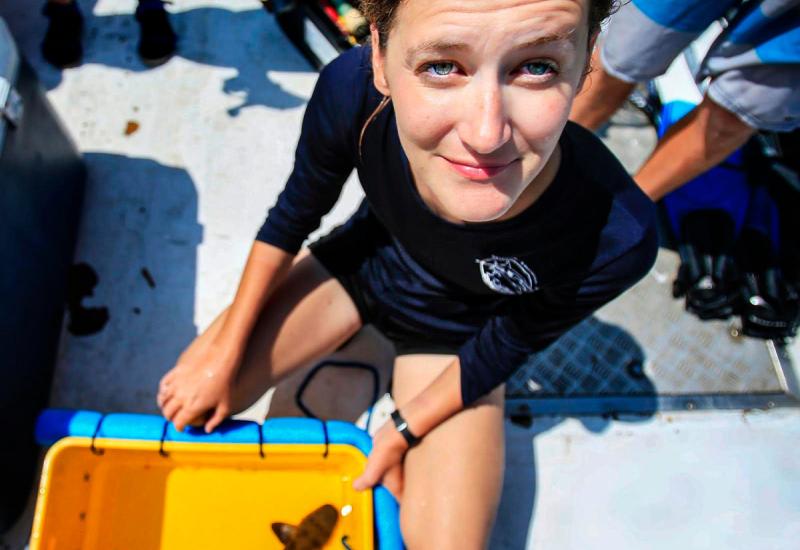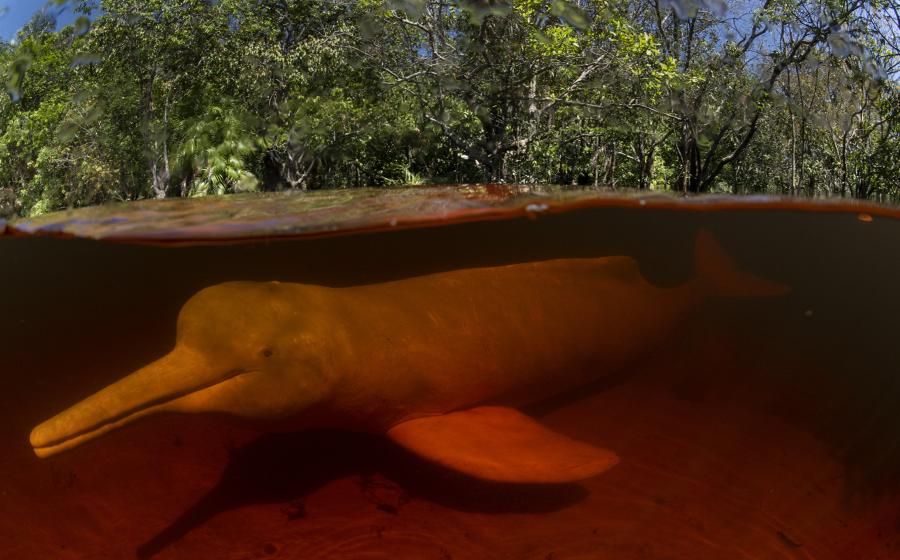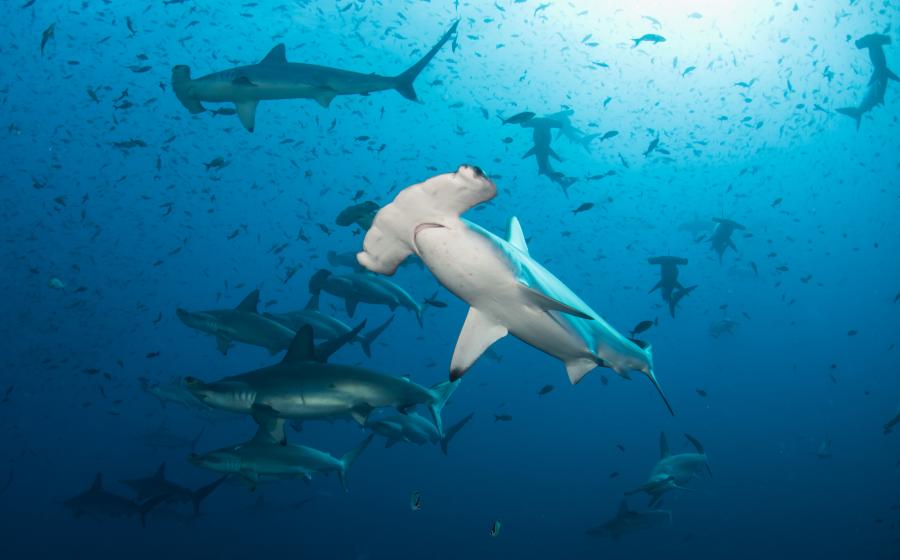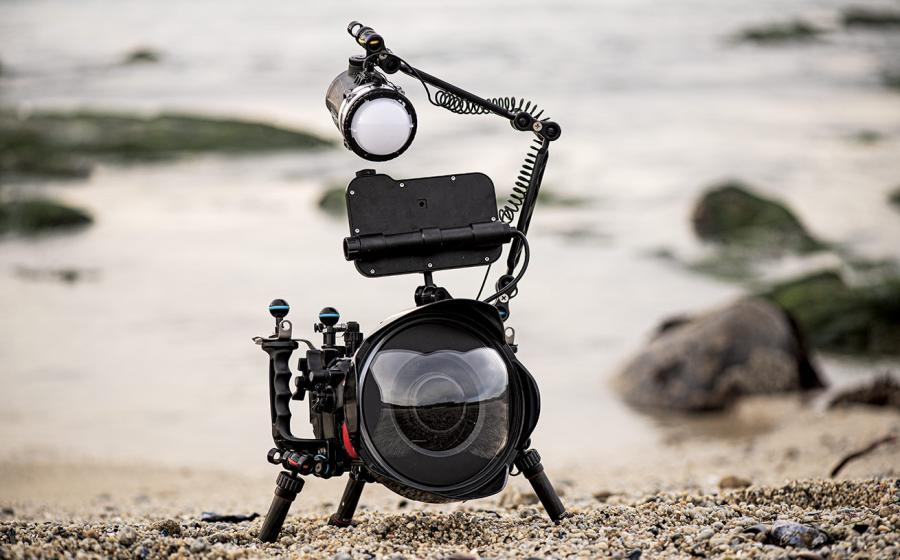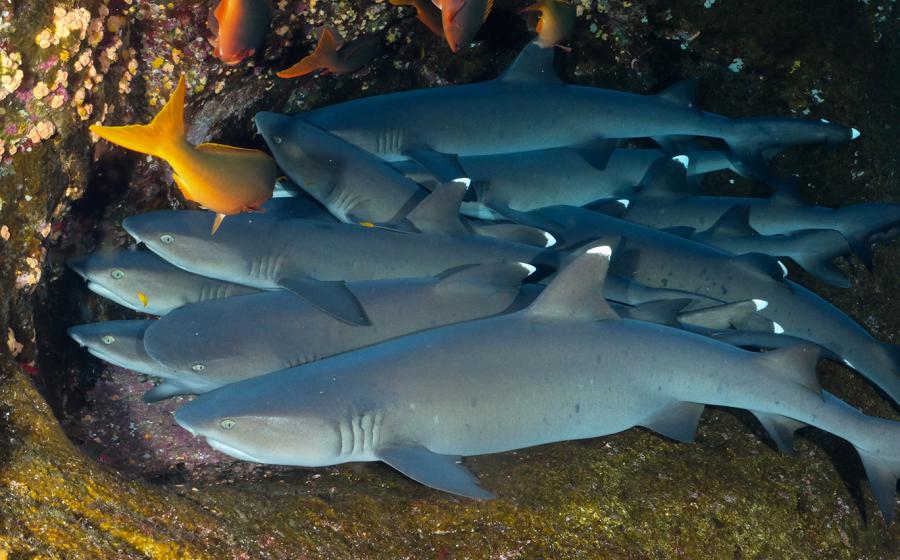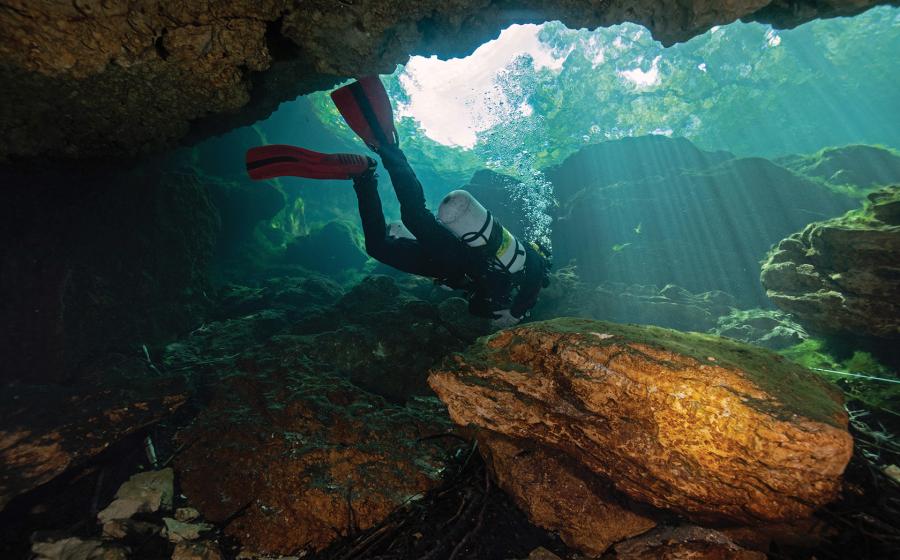Conservation Spotlight: Ghost Fishing
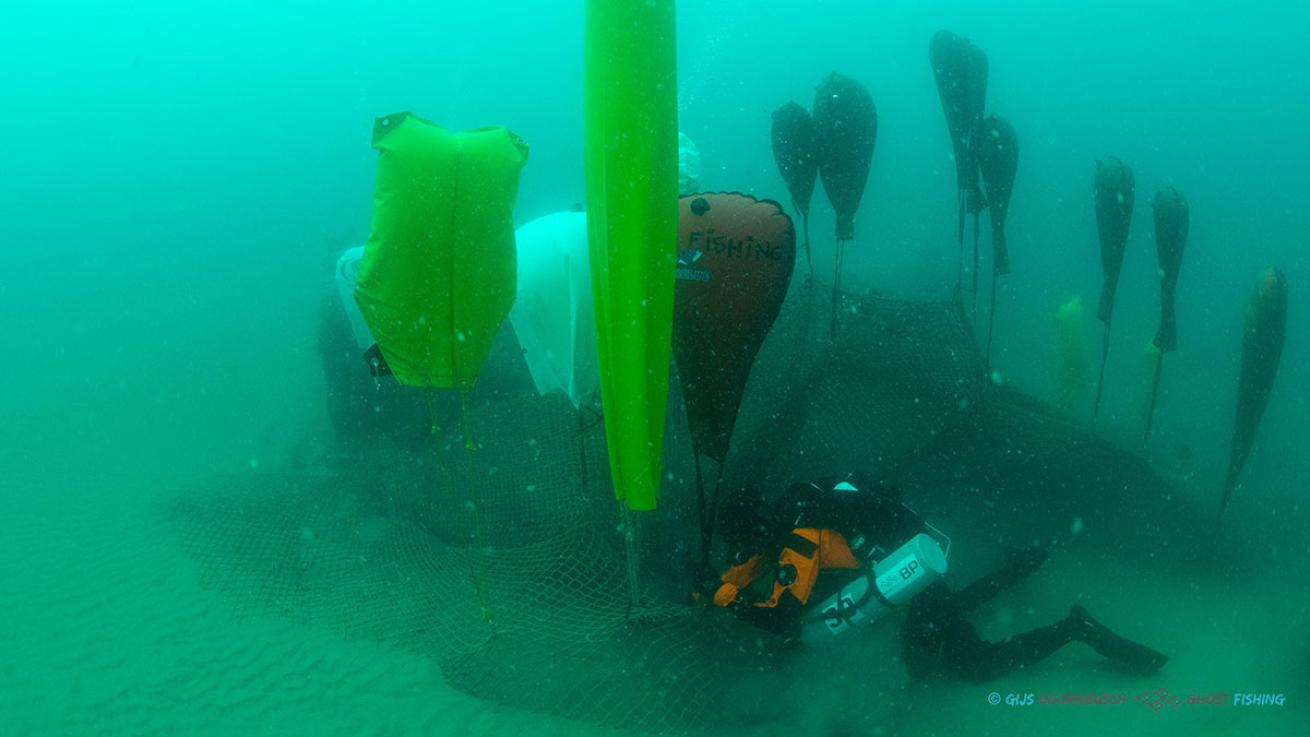
Courtesy Ghost FishingDivers use lift bags to recover ghost nets from the ocean floor.
MISSION: “To remove as much derelict fishing gear from our oceans as we can. We show the world the intrinsically hidden problem, as it is below the surface and most people cannot see it. We aim to recycle or even regenerate the material that we recover, thus striving for a circular economy.”
HQ: The Netherlands
YEAR STARTED: 2012
CONNECT: Instagram | Facebook | Twitter
PROJECT: Where there are fisherman, inevitably there will be gear lost to the waves. From nylon netting to lures and line, all types of fishing debris litters the ocean floor, entangling sea life and creating problems that persist long after fishermen have returned to shore.
“That gear, unfortunately, does not require the presence of a fisherman to catch marine life,” says Ghost Fishing team member Bas Poelmann. “A lure will attract fish, no matter whether there’s a human on the other end of the line or not. Nets, lobster pots, etc. continue to catch marine life, even when lost.”
When marine life gets trapped in this gear and dies, it attracts scavengers, who then get ensnared and die as well. And because fishing gear is mostly made from plastic and is non-biodegradable, Poelmann says, “The problem continues to exist unless we remove it.”
This is where Ghost Fishing comes in. Through the organization, teams of divers around the world enter the water with the purpose of removing fishing debris. They also focus on spreading awareness about the problem, opening the eyes of people who may never see below the surface.
The idea for the organization came after some of the core team had been diving Europe’s North Sea recreationally for about five years.
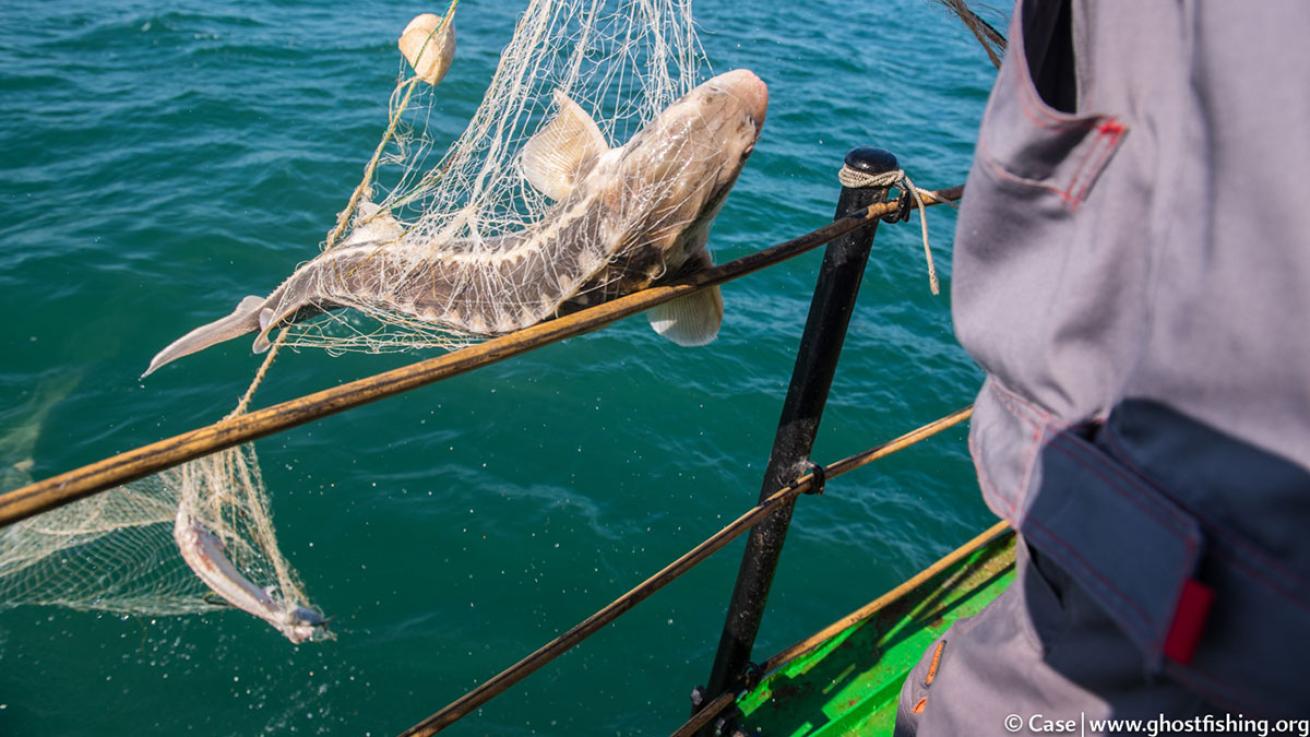
Courtesy Ghost FishingProject in Caspian Sea,Various types of fishing debris litter the ocean floor, entangling sea life and creating problems that persist long after fishermen have returned to shore.
“On every single dive we encountered lost fishing gear,” Poelmann says. “Every single wreck in the North Sea is covered in various lost gear. There are no exceptions — there are no ‘clean’ wrecks. It’s just all over the place.”
After establishing organization, the team started to partner with groups who had similar missions, creating Ghost Fishing chapters around the globe.
“We found out that we were not the only ones encountering lost gear, and we were not the only ones worried by it,” Poelmann says. “Through social media, we learned about the other groups, and we decided to try and unite these local initiatives.” Currently, the organization continues to have clean-ups running in the North Sea, as well as projects in the Mediterranean and Ireland. Local chapters, including the Los Angeles Underwater Explorers (LAUE) in California, also organize clean-ups in their home waters.
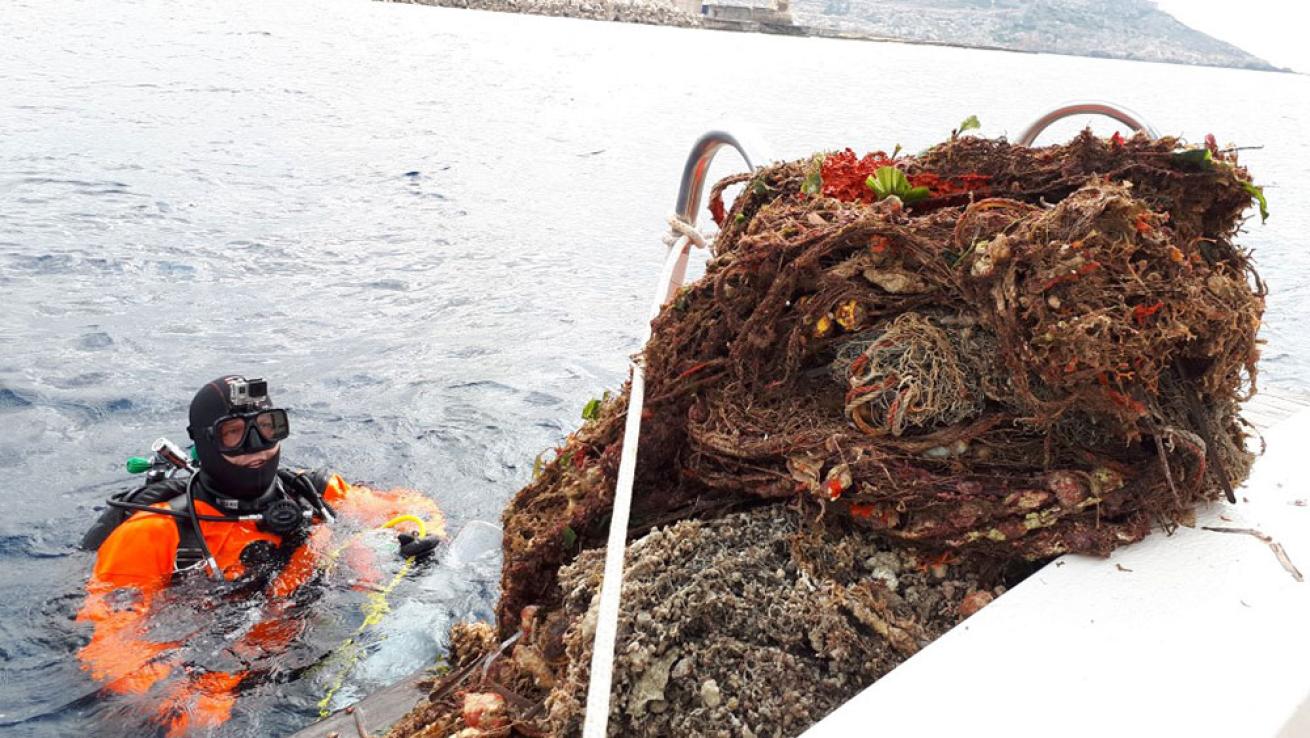
Courtesy Ghost FishingThe idea for the organization came after some of the core team had been diving Europe’s North Sea recreationally for about five years and finding discarded ghost nets on every dive.
GET INVOLVED:
If you’re in an area with an active chapter, you may be able to sign up as a volunteer. Because of the high risks and work restraints associated with lifting debris, the core chapter, based in the Netherlands, works only with very experienced divers who are able to commit to being part of the team. Much of the heavy-duty removal must be done by tec divers, but recreational divers are encouraged to join smaller-scale clean-ups to remove debris from their local dive sites.
Start small by documenting the location of debris you see on a dive, and report it to a dive shop or Ghost Fishing team. You can organize a local dive-site clean-up with your own dive buddies, but be sure you and your party are aware of the associated risks and are prepared only to dive within your limits — i.e., don’t start using lift bags or handling nets and hooks before you’re safely able, as the chance of getting tangled yourself can be high.
“Cleaning up one dive site or net may be relatively easy, but to keep doing so in the long run you may want to be part of something bigger,” Poelmann says.
If you’d like to create an official chapter, reach out to Ghost Fishing for tips on recycling initiatives, boat rental and fuel costs, fundraising and more.
As a nonprofit organization, Ghost Fishing relies heavily on donations to help cover the costs of boat rentals, travel expenses, fuel, equipment rental, website upkeep and more to support their missions.
Currently, donations from private organizations and individual backers are being used to execute a project in Ireland. The team finished a survey mission in May, and they will be returning for the clean-up in September. This would not be possible without donations.
“We only work with volunteer divers who spend their free time removing lost fishing gear,” Poelmann says. “We have no office or staff; we have almost 0 overhead. Every penny is spent on logistics or safety for the volunteers… We’re grateful for any donation we receive.”

